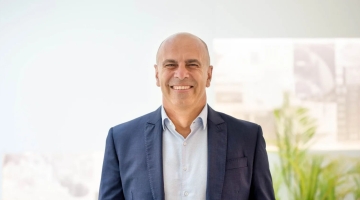
Work That Creates Wellbeing
Human Capital Is What Makes the Difference
Companies that invest in people gain resilience, motivation and cohesion, with positive effects not only on their business metrics but also on the surrounding social fabric
By Rachele Anconetani
Global events of recent years — from the pandemic to climate emergencies and geopolitical strife — have highlighted the crucial importance of human capital to ensure organizational resilience in times of crisis (Kuckertz et al., 2020). A company's ability to overcome difficulties and regain momentum depends largely on the contribution of its people deploying skills, knowledge and personal energy (Musa and Aifuwa 2020; Delladio et al., 2023). In this context, corporate welfare policies play a strategic role, as they contribute to strengthening motivation, wellbeing and collective performance (Wei et al., 2020). Data from a 2024 SDA Bocconi study shows that companies that have devised a structured welfare plan have seen tangible benefits in personnel management: more than one in two companies in the sample have increased their workforce by more than 10%, and one in five has reduced turnover by a similar amount. The effectiveness of welfare is also evident on the generational front, as nearly half of new hires is under 30, and 15% of companies have managed to reduce turnover in the same age cohort by more than 10%. A survey by Economia & Management (Dell’Acqua, A., Anconetani, R., Colantoni, F., Santoli, E. “Il Ruolo Strategico del Welfare Aziendale”, 2025) confirms that substantial investments, meaningful variety of services and a planned approach to corporate welfare are associated with higher levels of engagement, as well as a positive net balance between new entries and job endings.
The benefits of integrated welfare aren't limited to what happens inside the company, however: they also have a positive impact on the wider social and economic fabric. The SDA Bocconi School of Management research highlights that corporate initiatives such as sustainable mobility or active employee engagement generate greater demand for local goods and services, stimulating community development. People-care interventions — from parenting support to flexible working hours — encourage a better work-life balance, favoring both internal cohesion and economic and social sustainability. Other initiatives such as volunteer programs, team building activities or personalized benefit packages also strengthen the sense of community and trust among employees.
Some Italian companies have already launched innovative projects: company summer camps for children, affiliated networks of healthcare services and programs designed to support families and the elderly. In the diversity of respective objectives, these experiences share the aim of transforming the logic of welfare into concrete practices capable of generating significant social impacts and increasing pride of belonging to an organization.
Investing in corporate welfare is equivalent to adopting a long-term perspective on business development: organizations that integrate it into the business model can count on greater cohesion, motivation and resilience. At the same time, a solid internal welfare system creates a virtuous circle of relations within the community, where satisfied employees contribute to strengthening local growth and social stability. The pandemic experience has shown that companies capable of offering wellbeing and a balanced work-life tradeoff are the best positioned for the future. From this perspective, corporate welfare is not a cost, but rather a truly strategic investment in competitiveness and long-term sustainability.




